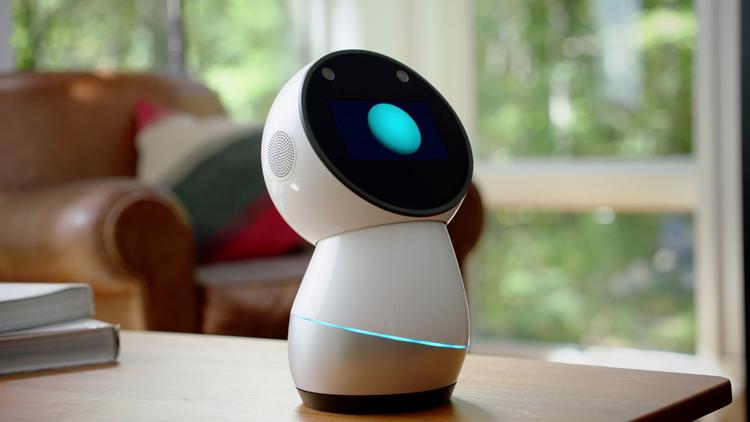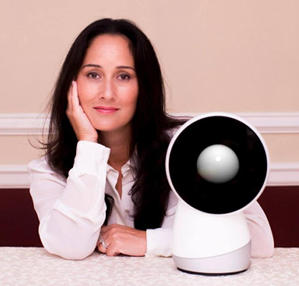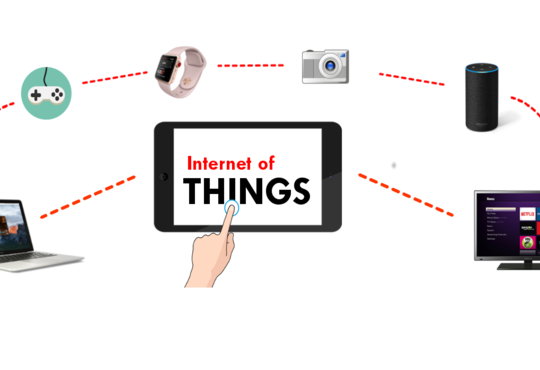What is JIBO?
Recently, the big craze has been talking to AI, like Apple’s Siri and Amazon’s Alexa, and using them as tools to complete tasks from as simple as checking the time or weather, to even asking for answers to complex mathematical equations, and not to mention the age-old question- “what is the meaning of life?”
However new and seemingly high-tech, these examples of artificial intelligence are quite primitive in the sense that other than being able to remember the user’s name, address and phone number, they lack the ability to truly learn and improve themselves in the way they think and understand what is being said to them. Then there is JIBO.
JIBO is what Siri and Alexa would be if they had a face (that blinks), a personality, and much less practical use. That is right, you read that correctly, he has a personality. JIBO is an AI that attempts to build relationships with his owners through facial and vocal recognition technology. He has an eye that literally follows the user when they talk to him and wields a 3-axis motor system that allows him to see 360 degrees [1].
Unlike his knowledge-wielding counterparts, JIBO has more human-like features; he provides body language while he listens and speaks, and dons a large eye that follows the user and blinks at an irregular pattern, making him more 'lifelike'. This was the intention of the developers; they sought out to provide customers with a conversationalist and a friend, rather than an encyclopedia and a dictionary, but did they succeed?

JIBO's Background and Upbringing
The company behind JIBO, also creatively named JIBO, advertise this $899.99 robot as a new direction for artificial intelligence. Although he may be less intelligent than Alexa and Siri might be, he apparently makes up for it with a personality and dance moves.
The company also goes as far as saying that “He’s smart, but not a know-it-all” and that “He’s a pretty helpful, friendly roommate too” [1]. Seeing that they state that he is not a know-it-all and only pretty helpful, shows that they are in fact advertising JIBO as a noncompetitive model towards the intelligence of other AI on the market, and is inferior in the sense of that type of practical use.
All criticisms aside, why would someone actually want this device? Although the way that this company has approached the development of this robot, prioritizing personality over practicality, is considered by many as the breaking the mold of modern-day AI development, the idea is successful on some fronts. When the device was first announced in 2014, it raised a total of $3 million on a fundraising website called Indiegogo.com and was pitched as the first ever “social robot” [2][5].
At the time of JIBO’s release, expectations were high— did the developers deliver? Well, yes and no. There were many different functionalities initially displayed by the developers that JIBO has yet to inherit, such as starting video chats, making phone calls, and ordering food; all of which the developers had promised, and yet, none of which had made the final cut. However, not all hope was lost.
The Future of JIBO
 Cynthia Breazeal, an associate professor of Media Arts and Sciences at Massachusetts Institute of Technology, is the inventor of JIBO and has big dreams and ambitions about the invention, as well as social robots as a whole. She sees that JIBO is more of a catalyst to this new industry of social intelligence, rather than a fully-fledged final product. JIBO is a part of the journey towards a robotic social revolution, not necessarily the destination [3].
Cynthia Breazeal, an associate professor of Media Arts and Sciences at Massachusetts Institute of Technology, is the inventor of JIBO and has big dreams and ambitions about the invention, as well as social robots as a whole. She sees that JIBO is more of a catalyst to this new industry of social intelligence, rather than a fully-fledged final product. JIBO is a part of the journey towards a robotic social revolution, not necessarily the destination [3].
Essentially, the developers advertised JIBO as a robot that improves through learning. She uses this to excuse the fact that JIBO is not as complex or knowledgeable as most other retail artificial intelligence. She explains that he is not a finished product, but instead a work in progress. Recently in fact, Breazeal’s company has upgraded JIBO’s software with the ability to play music due to the recent partnership with iHeartRadio [4]. This is a good sign, as it means that the developers have not taken the money and run, and alternatively continued the devices development.
“The Rise of Personal Robots” is a Ted Talk that Cynthia Breazeal delivered in the 2010 TED Women event, where she talks about her research and work on personal, social robots.
The Rise of Personal Robots | Cynthia Breazeal | TED Talks
One may find difficulty in recommending this device to their friends and families, but there is one important thing to remember about JIBO: in his current state, you are investing in the long development ahead, rather than buying a final, finished product. For many, the idea of paying full price for something unfinished would show many warning signs, but one must first understand the importance of JIBO before making that decision.
Changing the way retail AI interacts with humans is no ordinary feat; something like JIBO opens the doors and paves the way for many different directions in large-scale robotic development. It allows us to picture a world where AI is not just a directory of canned answers and a resource for music and facts, but instead, more like people, with emotions, thoughts and the ability to learn.
JIBO Demo
References
[1] JIBO: He Can't Wait To Meet You (n.d.). Retrieved January 15, 2018, from https://www.jibo.com
[2] Review: JIBO Social Robot (2017, November 7). Retrieved January 24, 2018, from https://www.wired.com/2017/11/review-jibo-social-robot/
[3] The rise of personal robots (2010, December). Retrieved January 30, 2018, from https://www.ted.com/talks/cynthia_breazeal_the_rise_of_personal_robots
[4] JIBO Teams Up With iHeartRadio (2017, December 13). Retrieved January 29, 2018, from http://blog.iheart.com/Pages/jibo-teams-up-with-iheartradio-to-launch-jibo-music.aspx
[5] JIBO, The World's First Social Robot (2014, September 15). Retrieved January 17, 2018 from https://www.indiegogo.com/projects/jibo-the-world-s-first-social-robot-for-the-home#/comments






